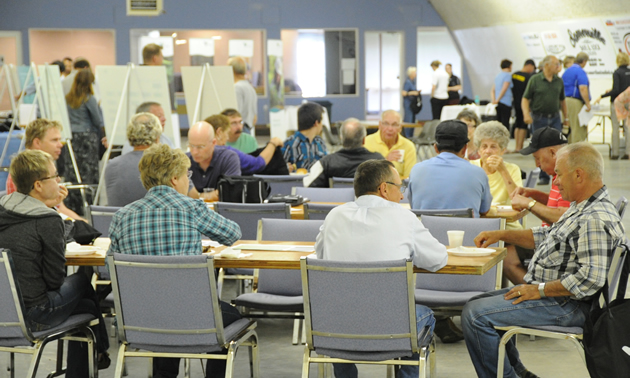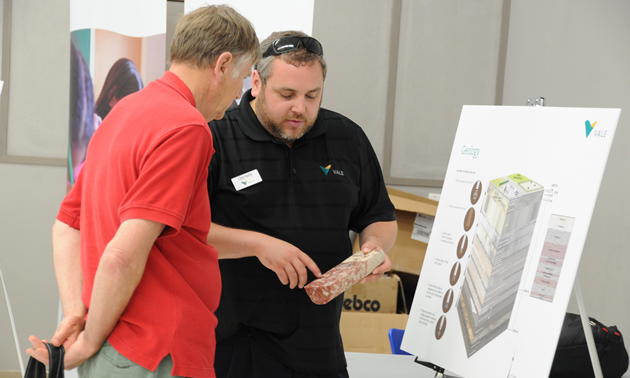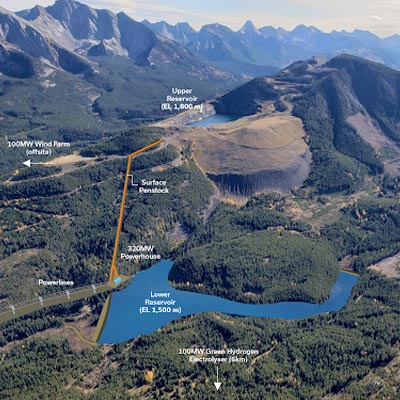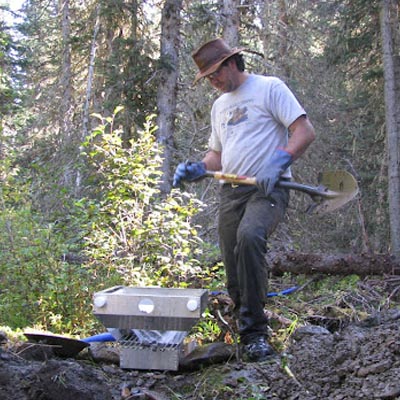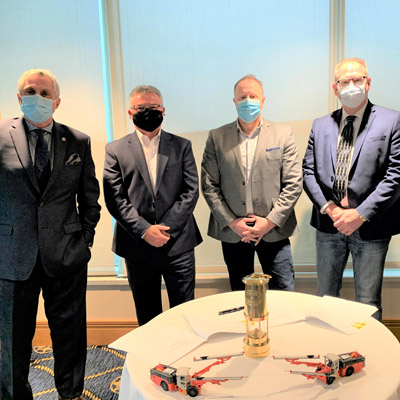Vale Potash Canada wraps up open house meetings for the Kronau Project
This July, Vale held open house meetings to discuss the Kronau Project's environmental impact statement
Vale Potash Canada's Kronau Project is a proposed solution potash mine that is expected to produce around 2.9 million tonnes of potash per year when built. It’s a new "greenfield" potash mine near the hamlet of Kronau, 20 kilometres southeast of Regina, Saskatchewan.
This July, Vale Potash Canada held open house information meetings to discuss the environmental impact statement (EIS) of the Kronau Project.
Matthew Wood, project manager for the Kronau Project, said Vale has made a commitment to the community at large that it would keep them informed, listen to and acknowledge their concerns and provide feedback on how public input influenced the company's decisions.
"Based on the response we received, I would say that the open house meetings were quite successful," said Wood. "We had 170 people attend the first event and 107 for the second town hall. Overall, the people who attended were optimistic about the project and came equipped with a range of questions. Attendees were primarily interested in the project status, traffic and construction, water usage and the economic effects for the area."
The Kronau Project is currently in the engineering and design stage, and near the completion of the Saskatchewan government’s environmental assessment process. The project is also examining a range of options (including joint venture partnerships, project funding and sale options) to fund the continued development of the Kronau Project. Should these options be successful, Vale Potash Canada expects to start one more year of detailed engineering in 2014 and, if successful, begin construction of the plant in 2015.
"The Vale Kronau Project has a community consultation specialist who is tasked with engaging with the community directly to discuss their issues or concerns and to answer their questions," said Wood. "This person is fully involved with the followup to what we heard at the open houses from community members and will be working with them directly in order to see if there is a way to address their concerns. All questions raised have been recorded and provide a valuable tool in making decisions about the project going forward. This also forms an important part of our planning with local rural municipalities and Saskatchewan government organizations."
Wood said the open house meetings were also not the beginning nor the end of Vale Potash Canada's community engagement.
"Vale is deeply committed to ongoing community engagement and using this feedback to be a good neighbour as demonstrated by our community sponsorship and land management," he said. "There will be many future opportunities to provide feedback and comments and to engage with the project."
The Kronau Project is Vale's first potash project in Canada. Saskatchewan is believed to have about half of the world’s potash reserves and is currently responsible for 30 per cent of the world’s supply. Scientists believe Saskatchewan’s reserves are large enough to supply long-term global fertilizer demand for several hundred years. Due to the geopolitical influences over the potash market and the stable political climate of Canada and Saskatchewan, many global players like Vale have been exploring and developing greenfield mines in Saskatchewan.
"Like many mining companies around the world, Vale is interested in potash because it fits with the direction the world appears to be headed," said Wood. "The world’s population is growing larger and gradually becoming more affluent. This means that, in the near future, we will see an ever-growing demand for food—both in terms of quantity and quality. Since potash is a key ingredient of the best fertilizers, it will play an indispensible role in feeding a hungry world. It also enables farmers to make best use of the valuable and limited agricultural land."
Vale has current fertilizer operations located in South America. This is a unique advantage, which means Vale has experience with production, logistics and marketing of fertilizers. Even with the current uncertainty in the potash market, Vale feels confident that long-term fertilizers will play an important part in the company's portfolio of products.
According to Wood, the Kronau Project is expected to employ up to 2,000 people during the four-year construction period and long term around 350 full-time employees. There is also a major flow-on effect for other services, contractors and businesses associated with the mine. Vale is committed to bringing many of these benefits to local businesses and has already spent a considerable amount in the local community.
Wood said the mine would have an estimated life of at least 70 years, during which time Vale believes it would produce roughly 2.9 million tonnes of potash per year. At today’s world prices for potash this would translate to approximately $1.2 billion per year of potash production. A substantial portion of this would flow back to the people of Saskatchewan and Canada through royalties, taxes, wages, supply purchases and other direct and indirect economic spinoffs.
Once Vale Potash Canada receives approval from the provincial government on its EIS, it will continue to advance the project. Should funding options be secured to build the mine, the project will move into a detailed engineering phase during 2014. Following that, the company expects to be in a position to begin construction and drilling in 2015. This would lead to the first production taking place around 2018/2019.
"Vale’s mission is to transform natural resources into prosperity and sustainable development," said Wood. "Vale’s vision is to be the number 1 global natural resource company in creating long-term value, through excellence and passion for people and the planet. The Kronau Project’s success will be an integral part of Vale’s global strategy."


